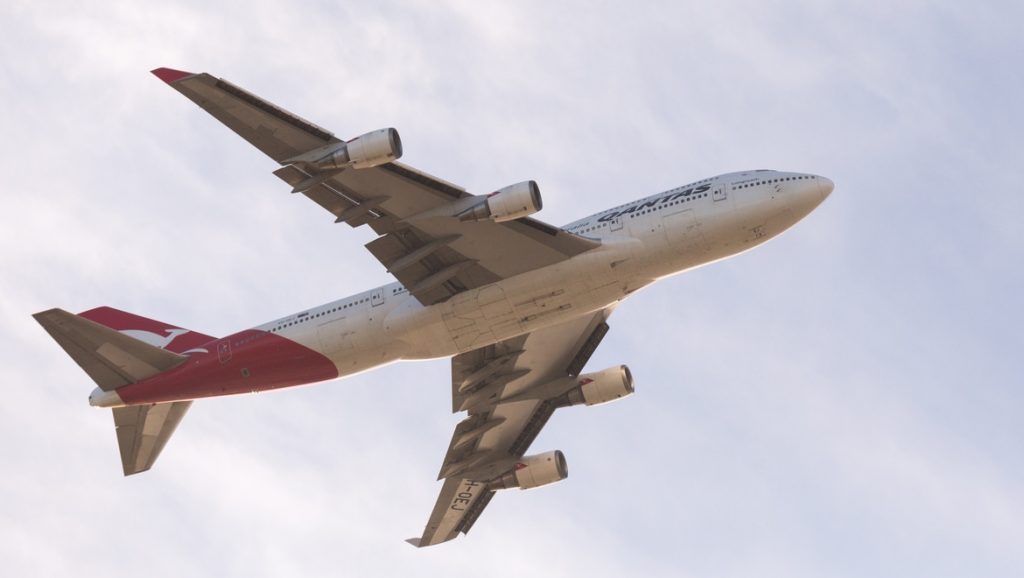
The Qantas Group has announced it’s planning to return to 70 per cent domestic capacity at Christmas, rising to 80 per cent in the first quarter of next year.
In a market update to the ASX, the business, which includes Jetstar, said it expects to be close to break even at an underlying level in the first half of this financial year, and be “net free cash flow positive”, excluding redundancies, in the second.
The news was among of string of major announcements made on Thursday morning, including that:
- The larger Qantas group will increase its liquidity by $500 million before 31 December 2020, on top of the $3.6 billion it already has;
- More than 5,000 of the 8,500 roles made redundant will be gone by the end of the year, with the “vast majority” via voluntary redundancy;
- Roles “stood up” will increase from around 9,000 in October to 11,500 in December, rising again to 14,000 in quarter three. Currently, approximately 13,500 roles remain stood down;
- The group has a current market share of 70 per cent, higher than usual, but expects to maintain this;
- Qantas will operate a further 24 repatriation flights in December and January;
- Several thousand high-tier members have applied to switch to Qantas’ loyalty program, following its pledg to make it easier to transfer from other airlines.
Chief executive Alan Joyce said, “We’ve seen a vast improvement in trading conditions over the past month as many more people are finally able to travel domestically again.
“There’s been a rush of bookings as each border restriction lifted, showing that there’s plenty of latent travel demand across both leisure and business sectors.
“Between Qantas and Jetstar, there were over 200,000 fares sold for flights to Queensland in 72 hours after the border openings with Sydney and Victoria were announced. We’re also seeing people booking several months in advance, which reflects more confidence than we’ve seen for some time.
“Bringing domestic capacity back to almost 70 per cent in December is very positive compared to where we’ve been, and so is seeing more of our people back at work. But overall, the group is still a long way off anything approaching normal.
“It’s unclear what shape the domestic economy will be in next year, particularly once broader government support winds back. Until a vaccine is rolled out, the risk of more outbreaks remains.
“International travel is likely to be at a virtual standstill until at least July next year and it will take years to fully recover, which means we’re carrying the overhead for billions of dollars worth of aircraft in the meantime. We’re also facing a revenue drop of at least $11 billion this financial year alone compared to pre-COVID.
“Overall, we’re optimistic about the recovery but we’re also cautious given the various unknowns. We also have a lot of repair work to do on our balance sheet from the extra debt we’ve taken on to get through the past nine months.
“That’s why we remain focused on delivering on our recovery program, which unfortunately involves following through on some hard decisions to restructure and respond to the new set of circumstances we’re faced with.”
Earlier this week, Qantas rejected a proposal from the TWU to retain 2,000 ground-handling jobs and confirmed the roles will be outsourced.
The airline said the bid from the union on behalf of employees didn’t save enough money compared with rival offers from third-party providers and was too “theoretical”.
In August, Qantas first announced the business was considering axing its remaining ground-handling operations, subject to hearing bids from both private contractors as well as existing staff.
Qantas’ plans will see the airline brand remove operations at the 10 Australian airports where the work is done in-house, which includes Adelaide, Alice Springs, Brisbane, Cairns, Canberra, Darwin, Melbourne, Perth, Sydney and Townsville.
Last week, TWU national secretary Michael Kaine said its bid, compiled with consulting firm EY, was “competitive” and has identified “numerous efficiencies and savings”.
In June, the wider Qantas group said it would cut 6,000 jobs altogether, or nearly 20 per cent of its workforce, before it later revealed the news around ground handling jobs.
The drastic cuts followed the business’ full-year financial results showing a loss before tax of $2.7 billion and an underlying profit before tax of just $124 million.
Virgin, meanwhile, went into administration before cutting 3,000 jobs and axing the Tigerair brand.
















Vannus
says:Good news at the end of its’ Centenary year!
QANTAS CEO Alan Joyce, & the Board have had to make some extremely difficult decisions’, thanks to the pandemic.
With this article, it seems those decisions’ have been correct, & the Company is gaining much needed funds’, to secure its’ future.